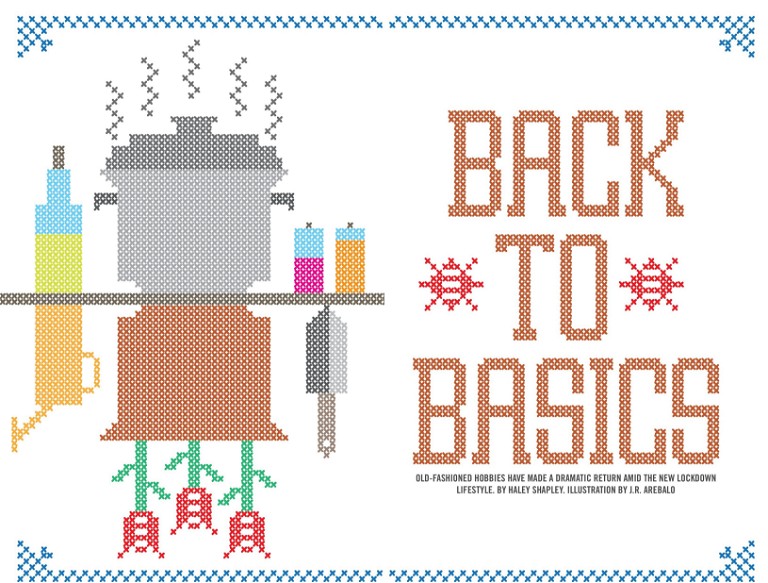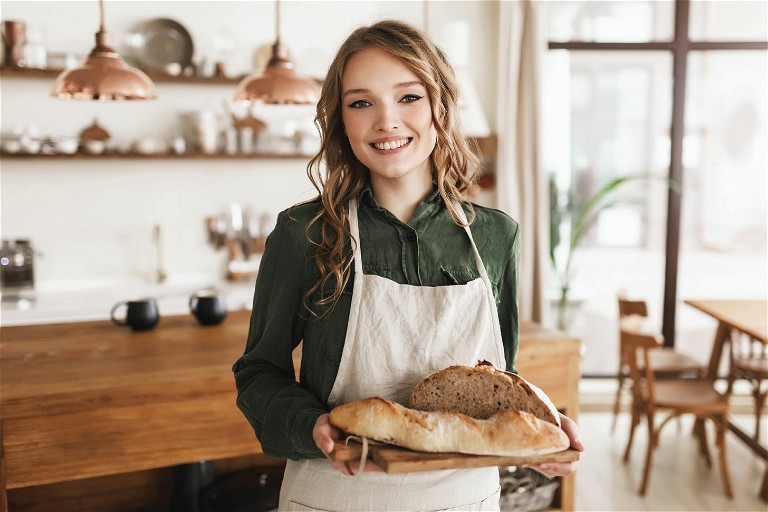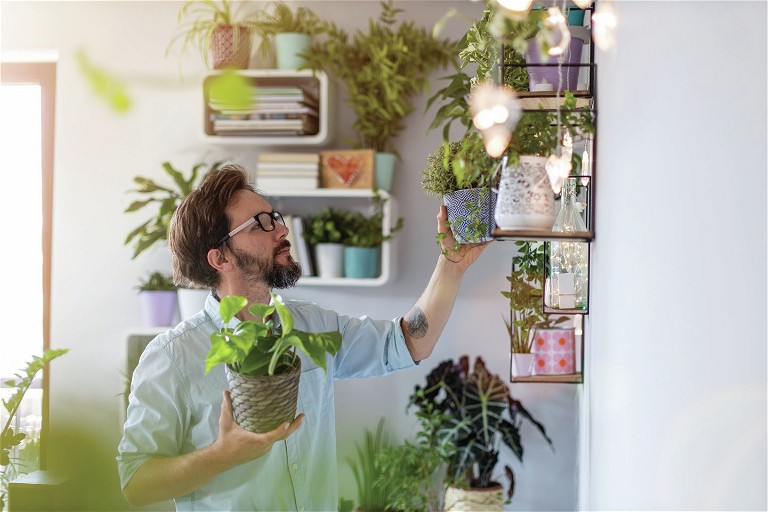BACK TO BASICS
OLD-FASHIONED HOBBIES HAVE MADE A DRAMATIC RETURN AMID THE NEW LOCKDOWN LIFESTYLE. BY HALEY SHAPLEY. ILLUSTRATION BY J.R. AREBALO
BY J.R. AREBALO


When stay-at-home orders began, the pace of American life slowed, but one thing rose: a whole lot of bread loaves. Social media was filled with photos of the wonders that can result when flour, yeast and water are mixed in the right combination. Plus, a plethora of back-tobasics activities filled our time.
“When people are under stress, they look to their surroundings to identify sources of comfort and coping,” said Stephanie J. Wong, PhD, a licensed clinical psychologist. “Activities of leisure and relaxation that are easily accessible, like baking a tasty loaf of bread, fuel motivation to work toward a goal and provide purpose and a connection to something other than yourself.”
New outlook on time
Strategic programs manager Erin Beacham was one of those who hopped on the bread bandwagon. Although she’d grown up baking, she’d always been scared of yeast — but with a wideopen calendar, she figured now was the time to give it another go. In her pre-coronavirus life, proofing bread for 18 hours would’ve been tough to manage with her schedule. Now, that was no longer a concern.
“Before the pandemic, I had a lot of plans up in the air; there was always something in play,” she said. “As soon as the pandemic started, everything just dropped. It was that feeling of music stopping and you didn’t realize it was going on, and all of a sudden it was really quiet.”
Beacham also started cooking more elaborate recipes and dedicated herself to training to run a Boston Marathon- qualifying time. Both gave her something to look forward to. “Routine and structure help me get through the day,” she said. “Now that the pandemic’s here and it feels like I’m just floating through it, untethered to other people and other things going on, it’s nice to have that structure and routine as part of daily life.”
Planting seeds of hope
Baking isn’t the only old-fashioned hobby that Americans took up during hours off. Suddenly, pursuits such as gardening, knitting and other practical, hands-on hobbies came into vogue. Jim Chen, who works in investment management, learned to use a sewing machine and began growing a variety of plants on his patio.
Without having his usual experiences like meeting up with friends and going out to dinner to inject variety into the day, Chen found that caring for his plants — and experimenting with which conditions worked best for them — provided a way to see progress in a time when it felt like nothing was moving forward.
“With these plants, you start with a seedling, and they grow a little bigger as you take care of them. It was a nice marker of the passage of time during this period,” he said. “I’d move the plants several times a day to optimize the sun exposure, which helped break up the day a little bit and gave me a reason to stay more active throughout the day.”

In times of uncertainty, a simpler, self-sufficient life is appealing — there is great value in learning the basic skills that can sustain us and save money. Tactile hobbies also provide a grounding element that’s not only calming but can make you feel more useful and connected to the world around you. With news headlines that can feel out of control, there’s comfort in knowing that seedlings will still sprout, stitches will still create a finished product and bread will still rise.
HALEY SHAPLEY is the author of Strong Like Her: A Celebration of Rule Breakers, History Makers, and Unstoppable Athletes.